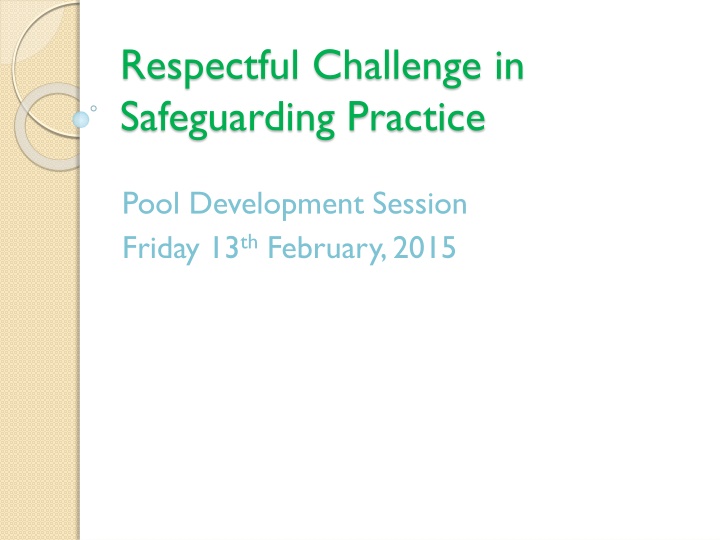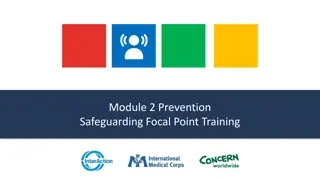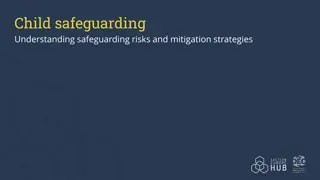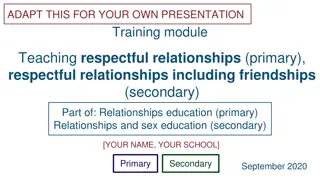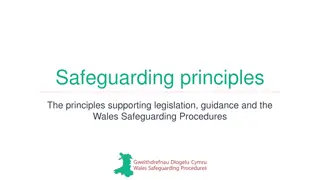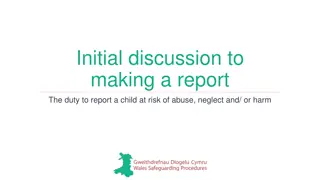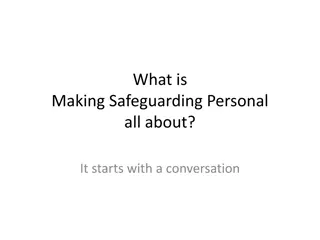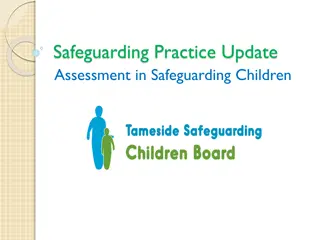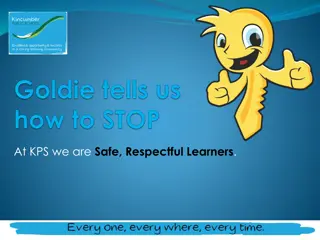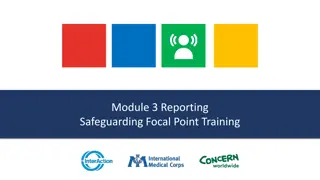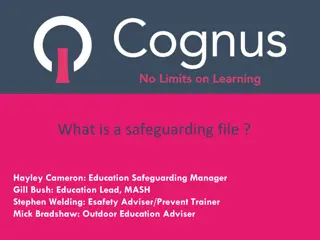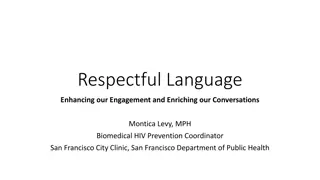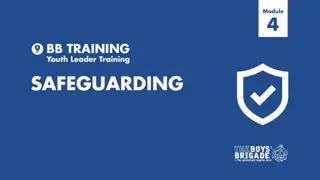The Importance of Respectful Challenge in Safeguarding Practice
Exploring the significance of respectful challenge in safeguarding practices, this content delves into the role of challenge in promoting child-focused decision-making while navigating disagreements and conflicts among practitioners and parents/carers. It emphasizes the need for practitioners to approach challenges in a manner that remains child-focused and highlights the potential benefits, pitfalls, and key elements of respectful challenge. The content also prompts reflection on personal challenges faced in practice, encouraging a culture that values differing perspectives for enhanced learning and growth.
Download Presentation

Please find below an Image/Link to download the presentation.
The content on the website is provided AS IS for your information and personal use only. It may not be sold, licensed, or shared on other websites without obtaining consent from the author.If you encounter any issues during the download, it is possible that the publisher has removed the file from their server.
You are allowed to download the files provided on this website for personal or commercial use, subject to the condition that they are used lawfully. All files are the property of their respective owners.
The content on the website is provided AS IS for your information and personal use only. It may not be sold, licensed, or shared on other websites without obtaining consent from the author.
E N D
Presentation Transcript
Respectful Challenge in Safeguarding Practice Pool Development Session Friday 13thFebruary, 2015
What do we mean by Challenge? To dispute the truth or validity of . A call to someone to participate in a competitive situation or fight to decide who is superior in terms of ability or strength A task or situation that tests someone s abilities
Do we need Challenge in Safeguarding? Challenge is an integral feature of Safeguarding the fundamental challenge to parents/carers to change their parenting It is also inevitable that there will be degrees of disagreement & conflict between practitioners & between parents and practitioners
Practitioners need to decide.. What When How to Challenge In a way that remains child - focused
Respectful Challenge Can be part of Inquisitive Practice especially in the face of Resistance There are potential benefits & pitfalls that we need to be aware of challenge can help establish truth but can also encourage secrecy/concealment Respectful Challenge can be part of honest /open practice but it can be experienced as intimidatory & lead to conflict
Challenge in Practice Discuss a challenge you had to make in your work What did it feel like to make the challenge? Was the outcome of the challenge successful or not and why?
What is Challenge? Parenting is a challenge and children are challenging Do we have a working culture in which reflection and challenge are encouraged? We learn more from those who disagree with us the challenge stimulates thinking and reflection What are the key elements of Challenge in practice?
Key Elements of Respectful Challenge Confident, Assertive, Focused, Calm, Clear, Evidence Based, Persistent, Determined, Child Focused, Boundaried, Grounded, Respectful, Tactful, Honest, Balanced It helps if some common ground can be established Challenge need not be destructive it can be motivational and based upon concern
To be comfortable with challenge Reflect on the perceived need to challenge with a colleague or manager Consider why what is the basis for the challenge & what exactly you need to convey? How will you pose the challenge, when and with whom? Set parameters don t go global! Review any outcomes .
It is part of the human condition.. The ultimate measure of a person is not where they stand in moments of comfort and convenience, but where they stand at times of challenge & controversy Martin Luther King
Effective Challenge is aided by Confident Ground What do we know? Assessment What do we think? Analysis What do we conclude? the above plus research evidence Decision making
Effective Challenge Not dogmatic, aggressive or closed Can enable responses which reduce the need to challenge or increase it Must be child focused I am saying this because it will benefit your child Do not be distracted by Power & Control from or towards you Assertive not destructive or aggressive
Serious Case Reviews Practitioners often reflect & say they wish they had challenged parents or colleagues for the benefit of the child With hindsight practitioners will often report they were not happy with a situation for a child but found it very difficult to challenge as needed This is evident in Tameside SCRs - Child K led to the Escalation Policy
Respectful Challenge in Practice Consider a situation where you are/have been faced with a need to challenge What is the nature of the challenge? Why might challenge help here? What would be a good outcome? How will you approach this challenge?
Cards on the table We should model openness and honesty about the likely need to respectfully challenge in Safeguarding practice We should encourage challenge in the interests of the child as being everyone s right
Statements Consider the statements about challenge in Safeguarding Do you agree with the statement or not and why?
In Summary Workers need to be resilient in order to use challenge appropriately Respectful Challenge can be a catalyst for change Challenge is a key feature of advocacy for a child/young person Children and young people often cannot effectively challenge and need practitioners who will do so
